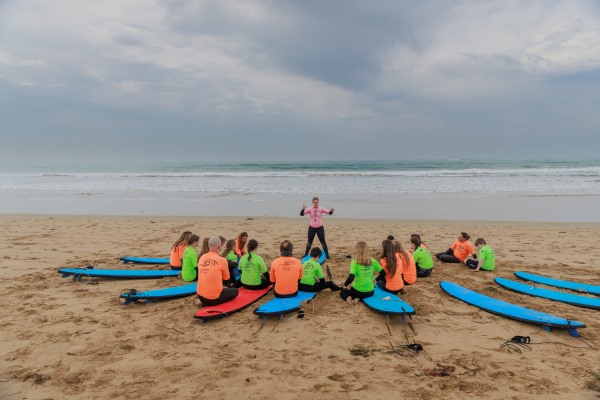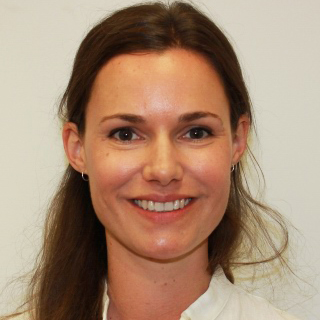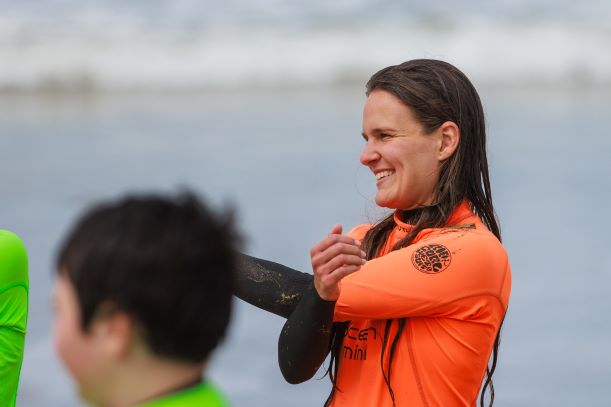In recent years, we have seen burnt out city dwellers move to seaside towns looking for a better quality of life, so what is it about being close to water that makes us feel good?
According to an interview in the Guardian in 2019 with environmental psychologist Dr Mathew White, there are three reasons proximity to water relates positively on our mental and physical health. The first is environmental factors typical of aquatic environments, such as less polluted air and more sunlight. Secondly, for those living by the water there is a tendency to be more physically active, not just with water sports, but also walking and cycling. And thirdly, water is proven to have psychologically restorative effects on our mind.
When researching the associations between green and blue spaces and mental health, White found that spending time around aquatic environments, or blue space, consistently showed higher benefits in boosting positive mood and reducing negative mood and stress than green spaces did. His 2010 study showed 120 photographs of natural and built scenes, half contained water, some even just a fountain, and both natural and built scenes containing water were associated with higher preferences, greater positive affect, and higher perceived restorative properties than those without water.
What is it about the ocean that makes us feel good?
Connecting with nature
Research suggests natural soundscapes, like water flowing, can have a restorative effect. Kate Campbell, a health psychology researcher at Te Herenga Waka-Victoria University of Wellington, believes it’s related to the sensory experience.
In an interview with the BBC, she says ‘Blue spaces provide us with distractions that take our mind away from the day-to-day hassles of life… The sound of the crashing waves, the smell of salty air, the crunching of sand beneath our toes…The sensations relax our bodies and tell our minds to switch off’.
If the science says water is good for our mental health, is it time for doctors to prescribe ‘blue space’?
CEO and founder of Ocean Mind Rachael Parker believes nature-based interventions can work.
‘We see relaxation in young people instantly from just getting in the ocean, some will just float there for a little bit and have this look of bliss on their face’.
Ocean Mind runs therapeutic surfing programs for young people with mental health challenges, social isolation, or disabilities. Whilst it’s a surfing program, Rachael claims surfing is just the activity they offer, the main goal is about building safety in an unsafe environment, the ocean, and challenging yourself with that.
‘When things aren’t going right, when depression hits or you’re anxious, the ocean is a break from that’.
‘The ocean commands your attention, it doesn’t allow you to be in your mind because it’s constantly changing, if you lose your focus… the ocean will come tap you on the shoulder, push you off the board and toss you around…sometimes we do get too messy in our heads, it’s nice to have a break from that’ she says.

Connecting with community
The Ocean Mind program not only nurtures individual wellbeing but is also a way to build connections with others and gain support from a community.
‘Enjoying the ocean as a solo thing is fantastic but when you get to enjoy it with other people it builds that sense of community and belonging. It’s important to share those experiences’, says Rachael.
Francisca Diaz De Valdes is a member of the Surf Coast Women’s Boardriders club in Torquay, Victoria. She says the club has given her an opportunity to connect with others and the confidence to feel secure and safe in the ocean.
‘It feels good to have support in the water and share fears with other women. When you feel confident to ask questions to someone in the group who is more advanced, it’s a big step, it opens doors to create other relationships. Its more than surfing in that sense, it’s a community, I enjoy that, not only because I learn more about the culture here, but I enjoy the friendships and social relations’.
Fran says it’s nice to go for a surf alone and see someone in the water from her surfing group.
“It’s good for safety reasons but also, I am doing something I really enjoy, and I know the other person is doing the same.”
Find a group near you
For those looking to join a local group with blue space in mind, local councils or community Facebook pages are great places to start. Swimming, surfing, surf lifesaving or coastal walking groups can help with staying active while enjoying the effects of blue space and building camaraderie and community with others. Environmental groups are also beneficial in building a connection with nature and meeting like-minded individuals with a shared commitment.
By incorporating more ‘blue space’ into our lives we can boost our mental and physical wellbeing. If getting into water isn’t your thing try a walk along the shore or sitting by a fountain and soaking up the sounds. Whatever it is, dip your toe in and see how it makes you feel.


